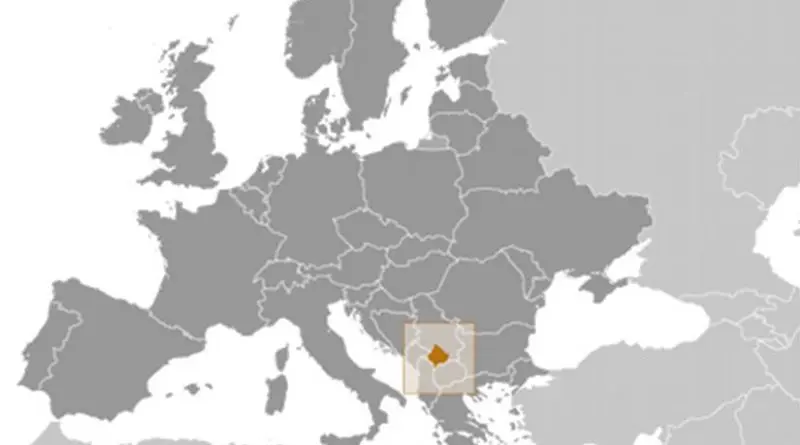Kosovo: Mustafa Loses No-Confidence Vote – Analysis
By Perparim Isufi
Yet another government in Kosovo has fallen before its mandate should have ended after MPs backed a no-confidence vote in the administration.
Isa Mustafa’s government in Kosovo was defeated on Wednesday after MPs backed an opposition motion of no-confidence.
Of 120 MPs in parliament, 78 voted for the motion, with only 34 backing the current government.
Along with the opposition Vetevendosje party, MPs from the Alliance for the Future of Kosovo, AAK, and NISMA, and some deputies from the ruling Democratic Party of Kosovo, PDK, also voted against the government.
Mustafa’s government became the third in Kosovo in a row to fall without completing its four-year term.
Made up of the PDK and Mustafa’s own Democratic League of Kosovo, LDK, it has undergone a torrid time as both the EU and US pushed it to take tough decisions on key issues that have been pushed under the carpet for years.
The opposition has been demanding elections for two years, mainly because of the controversial agreements that the government signed in Brussels in 2015 on border demarcation with Montenegro – that is still to be voted on in parliament – and on establishing an autonomous Association of Serb-majority Municipalities.
The ruling coalition has faced bitter opposition both outside and within institutions over both of these issues.
Opposition MPs have even resorted to using teargas in parliament to disrupt matters.
However, the government has been under strong international pressure to get moving with the border deal with Montenegro in particular.
The EU says it cannot proceed with visa liberalisation for Kosovo – an importance issue for the country – until the border issue with Montenegro is laid to rest.
Opposition parties insist the deal threatens to rob Kosovo of valuable pasture and farmland.
History of political crises
Kosovo’s two ruling parties, the PDK and LDK, have a history of bumpy relations. They established a coalition government in 2007, which oversaw Kosovo’s declaration of independence from Serbia in February 2008.
That coalition fell apart in 2010, when LDK leader Fatmir Sejdiu was forced to resign as President of Kosovo after the Constitutional Court ruled that keeping that post along with his party leadership contradicted the constitution.
On being elected President in 2008, Sejdiu had frozen his party duties but the Constitutional Court ruled that this was not enough.
Sejdiu’s resignation as President then prompted the withdrawal of the LDK from the government.
Subsequent elections resulted in a new coalition between the PDK led by Hashim Thaçi and Behgjet Pacolli’s Kosovo New Alliance, AKR, which governed until spring 2014.
That May, six months before his regular term as Prime Minister was due to end, Thaçi decided on snap elections.
The decision to dissolve parliament came after MPs failed to resolve two key issues: transformation of the lightly armed Kosovo Security Forces into a regular army and the reservation of seats for non-Albanian communities in parliament.
While other political groups backed the initiative, the opposition Vetevendosje party objected. Its leader, Albin Kurti, said Thaçi should have resigned as PM for failing to fulfil his key promises.
“He promised an army for Kosovo and has not realised the promise… so he must resign. If he does not resign, the opposition should dissolve the government. We should not allow the government to dissolve the parliament,” Kurti said in the parliament.
‘Deformed’ system cannot deliver consistency
Sociologist Artan Muhaxhiri told BIRN that politics in Kosovo was suffering serious structural deformations.
“One of the main reasons for this is the personalisation of the processes of making and breaking coalitions by party leaders,” he said.
“Lack of internal democracy and decision-making … have deprived government coalitions of consistency and of a regular spirit of cooperation,” Muhaxhiri added.
The current political system was not sustainable, he continued. “In Kosovo governments, budgets and the subsequent success of ministers are not achieved on the basis of merit but on the basis of the affiliations of the leader and clans around him,” Muhaxhiri said.
“Normalisation of the political spectrum can be achieved only through radical changes in the political mentality of the decision-making political personalities, which could take years,” Muhaxhiri said adding that it would also require more active engagement from ordinary citizens.
Petrit Zogaj, director of the Pristina-based monitoring organisation FOL [Speak-Up], told BIRN that building a democratic culture in Kosovo needs to “go beyond the constitution and paragraphs of law.
“On paper, we have the basic rules on how institutions should function, but in order to respect those rules, we need a better democratic culture,” Zogaj said.
“Due to the lack of a democratic culture and tradition, Kosovo is on the verge of creating another culture in which institutions cannot complete their regular constitutional mandates,” he added.
According to Zogaj, the political scene needs to see a new system in which coalitions are formed on the basis of ideology.
“Over the years, almost all the political parties, except Vetevendosje, have been in government coalitions. This has created a sense of complicity,” he concluded.

